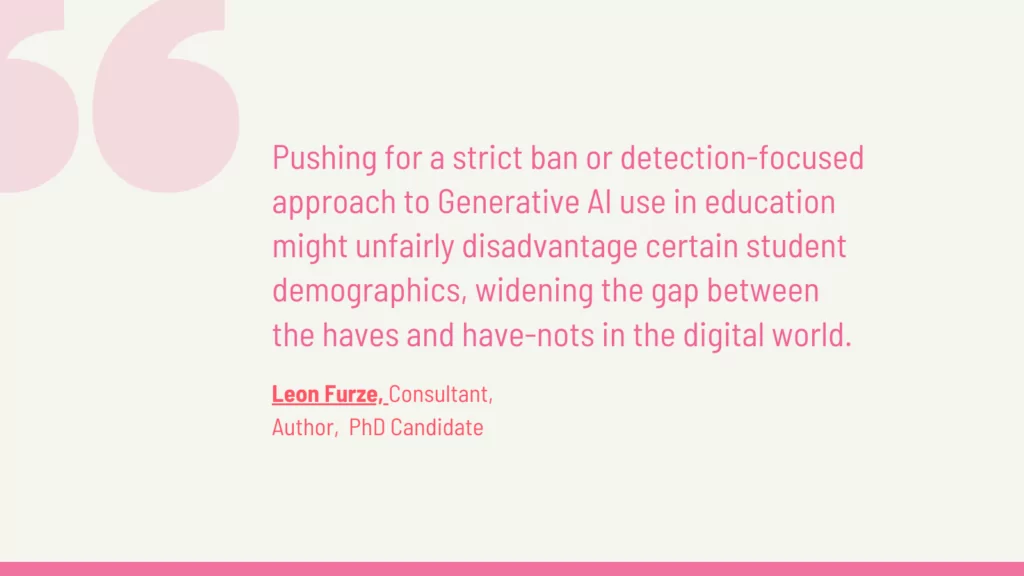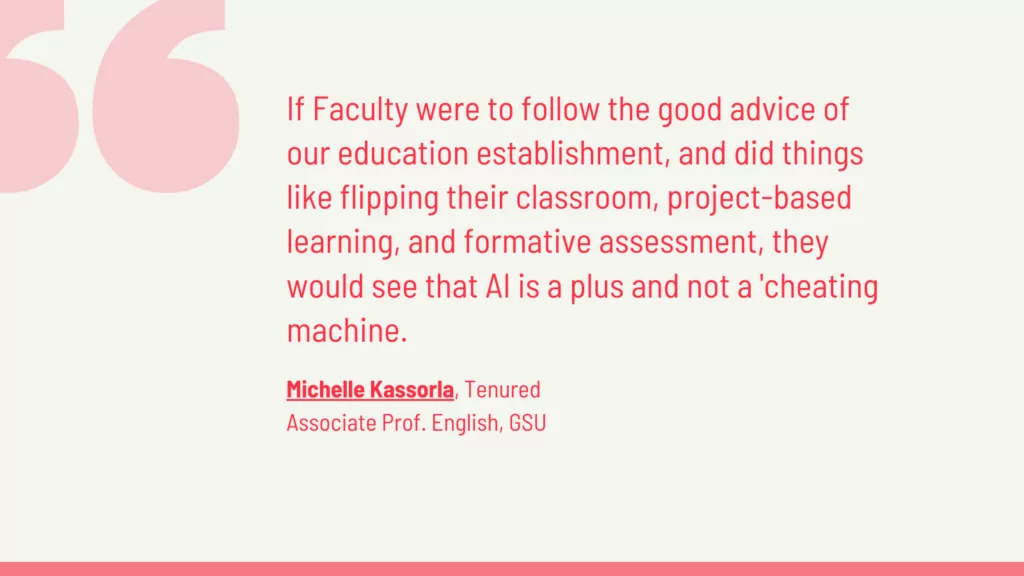As shared by Leon Furze on LinkedIn—a consultant, author, and PhD candidate with leadership roles at Young Change Agents and Reframing Autism—the conversation around Generative AI in education needs a pivot. With the rise of this technology, the stalemate on cheating narratives must give way to more constructive discourse. Furze’s recent presentations, now available through his slides, challenge the prevailing focus and propose a forward-thinking approach to assessment in educational settings.

✅ AI Essay Writer ✅ AI Detector ✅ Plagchecker ✅ Paraphraser
✅ Summarizer ✅ Citation Generator
Key Takeaways
- Far from being merely a tool for cheating, Generative AI offers multimodal capabilities that have evolved significantly in the past year, indicating a potential for broader educational application.
- An overemphasis on detection and banning of AI tools can exacerbate existing inequalities, potentially creating a new digital divide among students of different socioeconomic backgrounds and literacies.
- Existing policies stressing honesty and integrity in academic work are still relevant; what needs to change is the method of assessment to harness the constructive potential of AI.
Furze’s argument underscores a critical shift from viewing Generative AI solely as a cheating mechanism to recognizing its potential as an educational ally.
“The technology has moved beyond a tool for cheating on homework and assignments: we need to move on too.”
This statement alone advocates for a deeper understanding and integration of AI into educational strategies.
Equity and Access

Highlighting the issues of equity, Furze points out that “students with higher levels of literacy, digital literacy, English as a first language, and access to more expensive tech can game the system.” Thus, pushing for a strict ban or detection-focused approach to Generative AI use in education might unfairly disadvantage certain student demographics, widening the gap between the haves and have-nots in the digital world.
With a clear stance on maintaining academic integrity, Furze suggests a nuanced adoption of AI within the assessment process. He outlines a five-level framework, ranging from no AI involvement to full AI-generated outputs, demonstrating a progressive integration of technology based on the specific objectives of the assessment.
Academic Integrity and AI

Maintaining the integrity of academic work doesn’t necessarily mean excluding new technologies. Rather, it involves adapting and enforcing existing policies that encourage responsibility, honesty, and appropriate acknowledgment in students’ work.
Echoing Furze’s sentiments, Michelle Kassorla, a tenured associate professor, emphasized the benefits of embracing Generative AI. She stated,”If Faculty were to follow the good advice of our education establishment, and did things like flipping their classroom, project-based learning, and formative assessment, they would see that AI is a plus and not a ‘cheating machine.‘”
Conclusion
These insights shed light on the evolving landscape of Generative AI in education. By moving beyond the reductive cheating narrative, there is a promise of a more equitable, innovative, and integrity-focused educational future. His call to action is clear: It’s time to change the system and embrace the potential of Generative AI to enhance learning and assessment across all levels of education.
Follow us on Reddit for more insights and updates.





Comments (0)
Welcome to A*Help comments!
We’re all about debate and discussion at A*Help.
We value the diverse opinions of users, so you may find points of view that you don’t agree with. And that’s cool. However, there are certain things we’re not OK with: attempts to manipulate our data in any way, for example, or the posting of discriminative, offensive, hateful, or disparaging material.